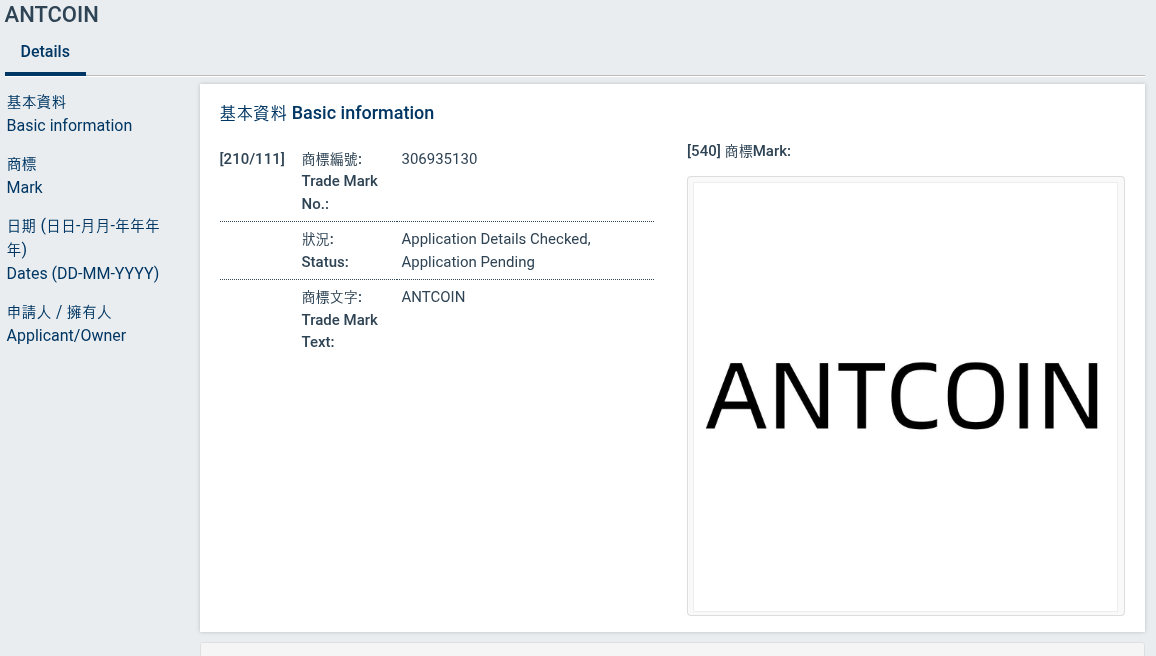
Ant Group‘s Strategic Trademark
In a move that has sent ripples through the crypto and fintech worlds, Ant Group, the financial technology behemoth backed by Alibaba, has filed a trademark for “Antcoin” in Hong Kong. This filing arrives amidst a backdrop of increasing regulatory pressure from mainland China regarding cryptocurrency activities. The registration, made in Hong Kong, includes provisions for digital currency and blockchain services, signaling Ant Group‘s continued interest in the evolving landscape of blockchain-based finance, even as the Chinese government tightens its grip on the sector.

Hong Kong: A New Frontier for Fintech?
Hong Kong has positioned itself as a potential hub for crypto innovation, contrasting with China‘s strict stance. The special administrative region has actively encouraged the participation of firms in its crypto economy, including accepting applications for stablecoin issuers. Ant Group‘s move to register “Antcoin” could be interpreted as a strategic bet on Hong Kong‘s more favorable regulatory environment. This is particularly significant considering earlier reports indicated Ant Group‘s plans to seek stablecoin licenses in both Hong Kong and Singapore.
China‘s Regulatory Scrutiny Intensifies
Simultaneously with Ant Group‘s trademark application, reports indicate that the People’s Bank of China intends to further crack down on cryptocurrency-related activities. This includes a specific focus on the creation and speculation of cryptocurrencies within China‘s borders. These actions highlight the ongoing tension between China‘s desire for financial control and the innovative potential of blockchain technology. The recent pressure appears to have extended to major tech firms, with reports suggesting that both Ant Group and JD.com had suspended plans to issue Hong Kong-based stablecoins due to concerns from Beijing.
The Implications of ‘Antcoin‘
The “Antcoin” trademark filing raises several intriguing questions. Will it represent a new stablecoin, a utility token, or something entirely different? How will it interact with existing blockchain infrastructure and the broader crypto market? The answers to these questions will significantly shape the future of Ant Group‘s blockchain ventures. Furthermore, the success of “Antcoin” could depend heavily on Hong Kong‘s ability to maintain its regulatory advantage. This is especially true given the potential for increased scrutiny from mainland authorities regarding any activities undertaken by firms operating within both regions.
A Balancing Act
Ant Group‘s recent actions present a fascinating case study in navigating the complex world of global financial regulation. As the company forges ahead with its blockchain plans, it must strike a delicate balance between innovation, regulatory compliance, and market demands. The future of “Antcoin” and Ant Group’s broader crypto ambitions are closely linked to the continued evolution of China‘s stance on digital assets and Hong Kong‘s role as a fintech leader.


